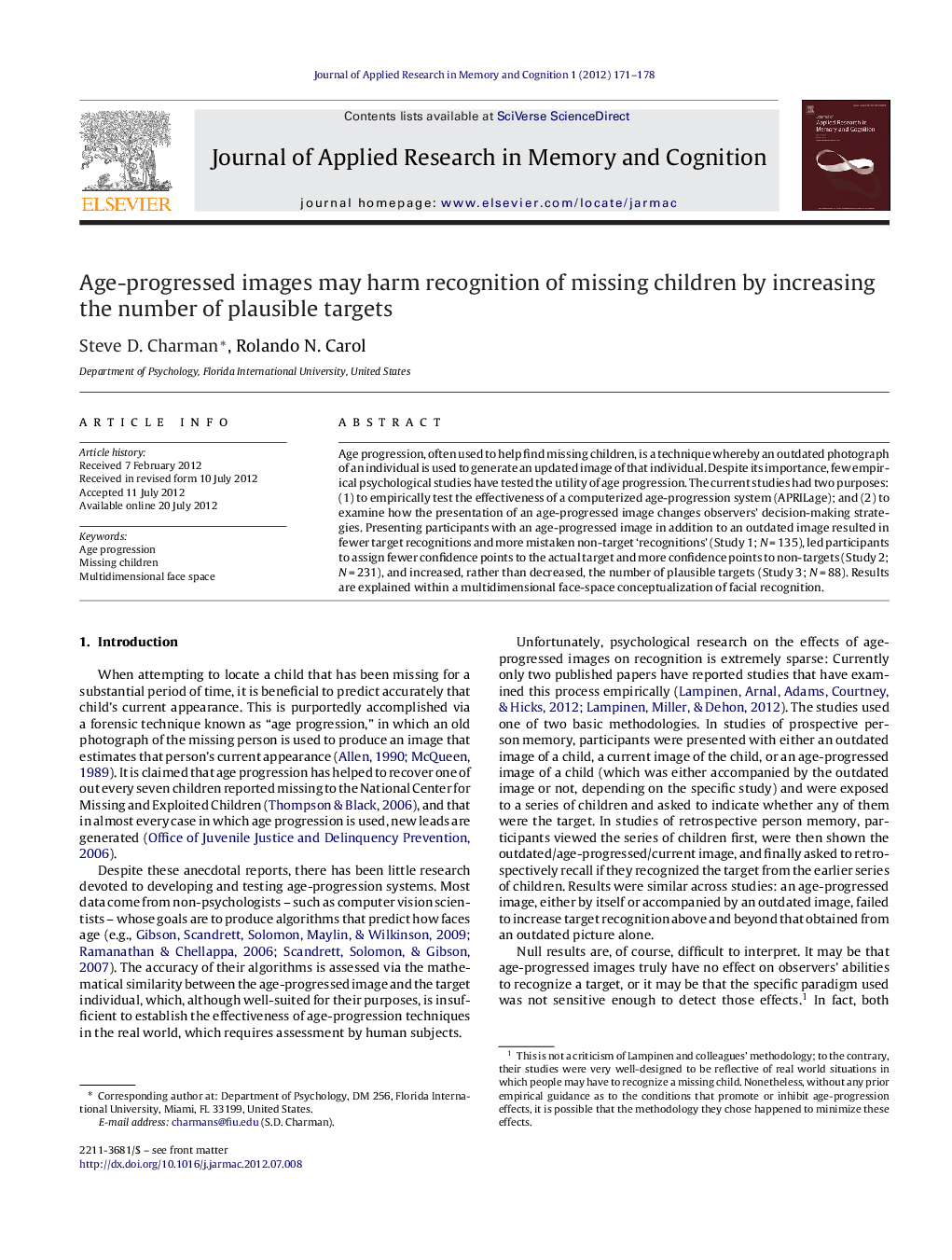| Article ID | Journal | Published Year | Pages | File Type |
|---|---|---|---|---|
| 881688 | Journal of Applied Research in Memory and Cognition | 2012 | 8 Pages |
Age progression, often used to help find missing children, is a technique whereby an outdated photograph of an individual is used to generate an updated image of that individual. Despite its importance, few empirical psychological studies have tested the utility of age progression. The current studies had two purposes: (1) to empirically test the effectiveness of a computerized age-progression system (APRILage); and (2) to examine how the presentation of an age-progressed image changes observers’ decision-making strategies. Presenting participants with an age-progressed image in addition to an outdated image resulted in fewer target recognitions and more mistaken non-target ‘recognitions’ (Study 1; N = 135), led participants to assign fewer confidence points to the actual target and more confidence points to non-targets (Study 2; N = 231), and increased, rather than decreased, the number of plausible targets (Study 3; N = 88). Results are explained within a multidimensional face-space conceptualization of facial recognition.
► The effectiveness of a computerized age-progression technique is tested. ► Age-progressed images decreased target recognition and increased mistaken non-target ‘recognitions’. ► Age-progressed images increased the number of people perceived as plausibly being the target. ► Age-progression can lead observers to engage in suboptimal decision strategies and harming recognition.
